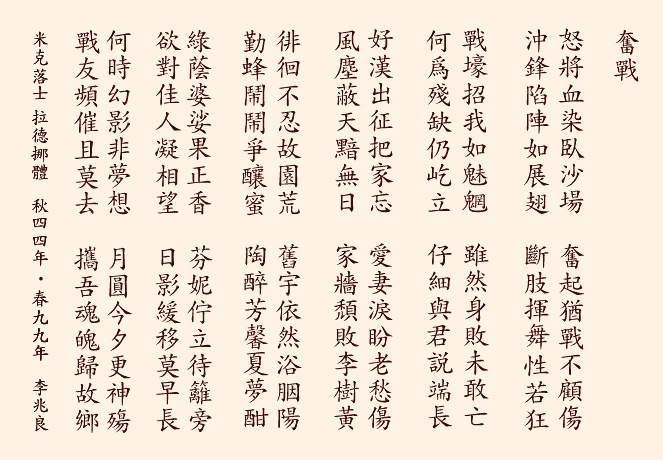(German)
(English)
(Chinese)
(Farsi)
(German)
(English)
(Chinese)
(Farsi)
|
Gewaltmarsch Verrückt ist, wer,
gestürzt, |
Forced MarchCrazy, who, from collapsing,and moves in stumbling torture and still is heading forward in vain the trench is calling, He'd answer to your question, that there's a dear wife waiting, Yet this good guy's quite crazy, since long the winds are blowing, The back wall fell to pieces, and gotten rough from scaring Oh, couldn't I believe yet that there is still a homeland, if there were still the old porch, and peaceful bees were humming the ending summer dozing and midst green foliage swaying and Fanni stands there waiting, and shadows written slowly Could all this still come true yet! Don't stride ahead, my comrade, Dedicated to all the suffering people in Jugoslavia and everywhere in the world. (Easter, 1999) (Transl. by A.W. Tüting © 1999) |
 |
(Transl. Dr. Siu-Leung Lee © 1999)

(When the body of the dead poet was discovered together with fellow prisoners (captives?!) in an anonymous mass grave in later Yugoslavia, some poems were found in his pockets - this was one of them. - A.W. Tüting)
(Homepage)|(Titles)